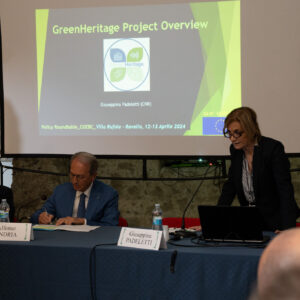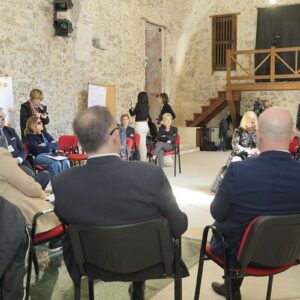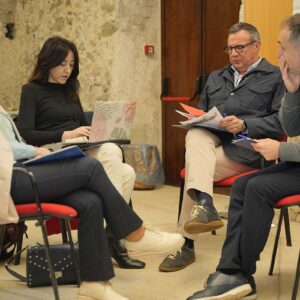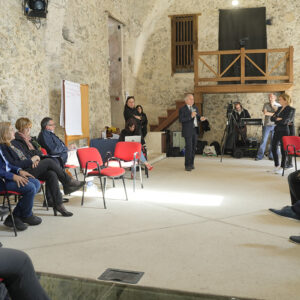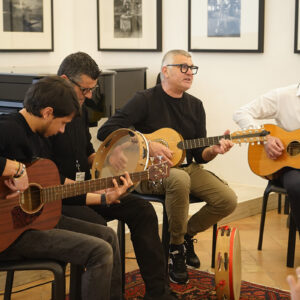Climate change and intangible cultural heritage: round table in Ravello, 12-13 April 2024
The topic of climate change is undoubtedly among the key points of the political agenda today and is at the center of important debates also between institutions, associations, sector bodies and communities.
Among the aspects that most require attention, there is certainly the impact on intangible cultural heritage, made up of practices, rituals, stories, languages, songs, dances, traditions, foods, skills that communities recognize as fundamental elements in the construction and representation of its territorial identity. It is therefore necessary that new attention and sensitivity be dedicated to this particular theme capable of bringing out all the importance and problematic nature of the issue.
It was discussed, in the presence of experts, technicians and community representatives, in Ravello, on 12 and 13 April 2024, as part of a policy round table organized by the European University Center for Cultural Heritage, foreseen in the of the European Green Heritage project (co-financed by the Erasmus + programme), among the pioneering projects of this research direction..
The work will lead to the publication of a summary document (policy brief) containing specific guidelines and recommendations to prevent the effects of climate change on intangible cultural heritage.
Thanks to a reflection based on listening and dialogue between experts, professionals and communities who share skills and experiences, a series of recommendations that aim to guide decision-making processes in this field will be offered to local, regional, national and European administrations. But not only that: a fundamental aspect of the project is, in fact, that relating to the communication and sharing of research results since, among its main objectives, there is the development of new awareness both within the reference communities of the cases study, and to other communities that present the same vulnerabilities, to associations, sector bodies and foundations.
Specifically, the European University Centre for Cultural Heritage has therefore invited experts, local administrators, research institutions, businesses and associations to dialogue and discuss in the context of two consecutive round tables:
- Knowledge and Techniques (the art of dry stone walls on the Amalfi Coast)
- Traditions, Rituals and Cults (the feasts of the Madonna Avvocata and the Ceri of Gubbio)
Starting from the discussion on the case studies, therefore, we reflected on the possible forms of vulnerability of intangible cultural heritage in the face of climate change, on risk mitigation strategies and, above all, on actions useful for generating awareness and proactivity among communities.
From the work, a series of policies emerged on which to focus in the medium and long term.
These policies have been divided into seven macro-themes: regulation; governance and planning of risk management interventions; training of specific skills for the public and private sectors; awareness and information actions; material and immaterial support infrastructure; targeted search; capitalization, green solutions.
By the end of May 2024 the Policy brief will be printed and distributed.
Particularly interesting was the ‘twinning’ with the city of Gubbio and with the Festa dei Ceri, which is held in the Umbrian center every year on 15 May. A delegation from Gubbio actively participated in the round table, and negotiations are underway between the Municipality of Gubbio and the Center to start a formal agreement, with the aim of collaborating on the development and implementation of valorization, protection and dissemination projects on the theme of intangible cultural heritage.
The “GreenHeritage The impact of climate change on intangible cultural heritage” project is financed by the Erasmus + community programme. Started in 2022, it will last until 2025. In addition to the National Research Council which is its leader, GreenHeritage is promoted and implemented by dal Centro Universitario Europeo per i Beni Culturali (IT); CMCC Fondazione Centro Euromediterraneo sui Cambiamenti Climatici (IT); ReadLab P.C. Research Innovation and Development Lab (GR); ILFA LU The Institute of Literature, Folklore and Art of the University of Latvia (LV); UAEGEAN University of the Aegean (GR); CANDIDE International (BE), ELORIS S.A. Research, Education, Innovation and Development Company of the North Aegean Region (GR); ALLI Athens Lifelong Learning Institute (GR).


